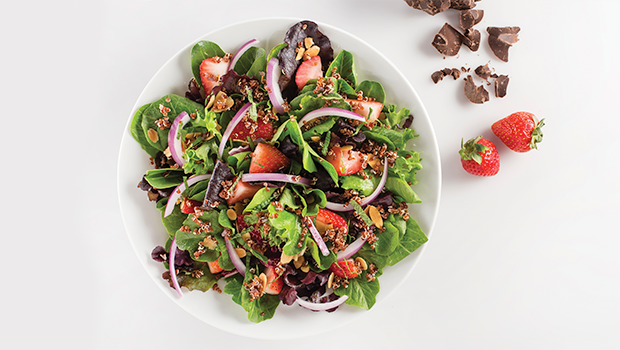Is fasting for you?
April 2, 2019
Pam Schoonveld, M.S., R.D., LDN, Cardio-Pulmonary Rehab Clinical Dietitian, NCH Wellness Center

If you’re among the 71.6 percent of adults over age 20 who are overweight or obese, it may be time to rethink the way you eat. Obesity is linked to an increased risk for heart disease, stroke, type 2 diabetes, high blood pressure, some cancers, sleep problems, bone and joint ailments, and problems during pregnancy for both mom and baby. Intermittent fasting, a newer diet trend, offers a variety of options for weight loss, including:
- The 5:2 plan – fasting two days per week and eating like normal on the other five
- The Eat/Stop/Eat plan – fasting one to two days per week
- The Alternate-Day fast – fasting every other day
- The 16/8 fast – fasting for 16 hours straight and limiting eating to eight hours per day, such as 10 a.m. to 6 p.m.
Depending on the diet, the fasting period may allow a person to consume only calorie-free drinks or 500 to 600 calories per day (for women and men, respectively). During the non-fasting period, a person is generally allowed to eat food with no restrictions, though some diets encourage sensible eating (recommended 2,000 calories per day for women and 2,500 calories per day for men).
Proponents of intermittent fasting claim it helps people lose weight, allows them to enjoy their favorite foods and results in favorable health markers. Animal studies on mice and rats and a few studies in people have shown positive outcomes. Many studies suggest fasting-type diets may produce more weight loss than traditional calorie-restricted diets. They may result in lower blood levels of glucose, bad LDL cholesterol and triglycerides compared to traditional weight- loss diets.
By the end of one study, two participants with type 2 diabetes no longer required insulin to control their blood glucose because of the weight they lost. These outcomes sound intriguing, but more studies are needed to answer questions like:
- Does the weight loss last longer than with other approaches?
- Is there any harm to heart tissue? (One animal study suggests yes.)
- Do fasting periods slow metabolism because the body perceives starvation?
- Do mental and physical performance suffer during fasting? (Some studies suggest yes.)
The good news is that there is great interest in this subject for research, so more information should be coming.
Who shouldn’t fast?
People who take insulin and women who are – or may be – pregnant should avoid fasting diets because of risks related to low blood sugar and undernutrition.
Fasting tips
- Eat breakfast a little later so you can last until lunch and forgo the donuts.
- Consider setting a cut-off time for eating in the evening, like after dinner.
- Learn to dissociate eating from social media activities and watching TV.
- Keep active during waking hours to keep your mind off of food.
- Take time for meals, but then find things to do away from food.
- Tune into your body’s needs and ask yourself if you’re truly hungry or just bored, tired or stressed.
- Drink a calorie-free drink, like hot tea or flavored water to tide you over until the next meal.
- Continue to get essential nutrients from food, like calcium in low-fat dairy products, potassium in vegetables, anti-oxidants in fruits and fiber from whole grains. (Skipping meals could be a setback to achieving nutritional health.)
- Eat nutrient-dense foods (those with a lot of nutritional benefit without a lot of calories.)
This Strawberry Salad & Dark Chocolate Vinaigrette recipe is a good example of a nutrient-dense food.

It is possible to lose weight and keep it off. Successful patients tend to make small changes they can live with long-term.
Need help? NCH has registered dietitian nutritionists who can teach you how to make better food choices when shopping, preparing or ordering food. Learn more about the NCH Nutrition Clinic and call 847-618-3700 to schedule an appointment today.
Pam Schoonveld can be reached at (847) 618-7916 or pschoonvel@nch.org.